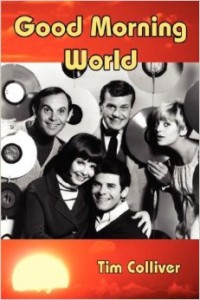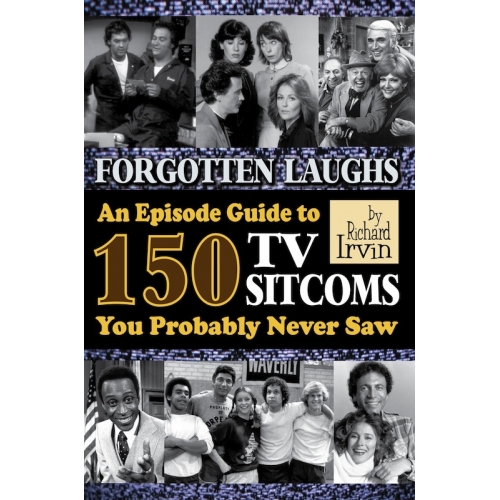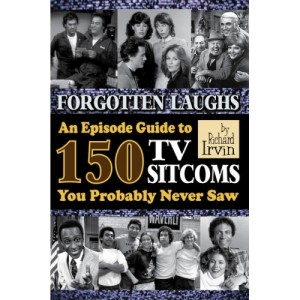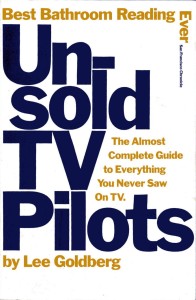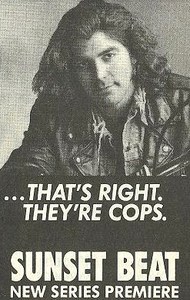Sometimes I think Richard Irvin is writing books just for me. It’s almost like I’m holding him prisoner in my basement, feeding him Cheetos and forcing him to write TV reference books on delightfully obscure subjects for my personal amusement. His credits so far include such gems as Forgotten Laughs: An Episode Guide to 150 Sitcoms You Probably Never Saw, George Burns’ Television Productions: The Series and Pilots, Spinning Laughter: Profiles of 111 Proposed Comedy Spin-offs and Sequels That Never Became Series. Now he’s back with two more winners…
 The Early Shows: A Reference Guide to Network and Syndicated Primetime Television Series from 1944-1949 (Bear Manor Media) This is an amazing work of television search and scholarship, tracking shows from the dark ages of television that few people have seen or ever heard of. Irvin is the consumate researcher and goes into astonishing detail on each show. But this is far from a dry, boring reference book…it’s hours of fascinating reading, it’s also a time capsule offering a glimpse into the cultural, historical, technological issues of the day…and an intriguing foreshadow of what was to come in television’s future. It’s full of cool trivia — for example, in the sitcom Mama (1949-1956), Dick Van Patten played the eldest son, but when he had to miss a few episodes James Dean stepped in to play the character in his place. And guest stars in the sitcom included Paul Newman and Jack Lemmon. One of my favorite discoveries in the book is a series called Off The Record, which ran for two episodes in September 1948. It starred Zero Mostel as a millionaire DJ broadcasting a radio show from his lavish Manhattan penthouse apartment. Mostel walked off the show when the producer failed to deliver a promised live audience to fill the theater where the sitcom was filmed. Another intriguing show is the dark drama anthology Mr. Black, which aired for a just few weeks in the fall of 1949, and was written entirely by novelist and prolific television writer Bill Ballinger. Mr. Black was the Devil’s emissary on earth and he took particular delight in pitting people against one another and seeing just how much death and misery he could cause. So little is known about the show that there’s some dispute over who actually starred in it. I know I say this a lot, especially about Irvin’s books, but this is a must-have for any television reference collection. But wait, there’s more…
The Early Shows: A Reference Guide to Network and Syndicated Primetime Television Series from 1944-1949 (Bear Manor Media) This is an amazing work of television search and scholarship, tracking shows from the dark ages of television that few people have seen or ever heard of. Irvin is the consumate researcher and goes into astonishing detail on each show. But this is far from a dry, boring reference book…it’s hours of fascinating reading, it’s also a time capsule offering a glimpse into the cultural, historical, technological issues of the day…and an intriguing foreshadow of what was to come in television’s future. It’s full of cool trivia — for example, in the sitcom Mama (1949-1956), Dick Van Patten played the eldest son, but when he had to miss a few episodes James Dean stepped in to play the character in his place. And guest stars in the sitcom included Paul Newman and Jack Lemmon. One of my favorite discoveries in the book is a series called Off The Record, which ran for two episodes in September 1948. It starred Zero Mostel as a millionaire DJ broadcasting a radio show from his lavish Manhattan penthouse apartment. Mostel walked off the show when the producer failed to deliver a promised live audience to fill the theater where the sitcom was filmed. Another intriguing show is the dark drama anthology Mr. Black, which aired for a just few weeks in the fall of 1949, and was written entirely by novelist and prolific television writer Bill Ballinger. Mr. Black was the Devil’s emissary on earth and he took particular delight in pitting people against one another and seeing just how much death and misery he could cause. So little is known about the show that there’s some dispute over who actually starred in it. I know I say this a lot, especially about Irvin’s books, but this is a must-have for any television reference collection. But wait, there’s more…
 Film Stars’ Television Projects: Pilots and Series of 50+ Movie Greats 1948-1985 by Richard Irvin (McFarland & Co). I went into this thinking there wasn’t going to be anything here of interest to me…after all, I wrote Unsold Television Pilots 1955-1989. What could he tell me about the pilots by film stars that I don’t already know? Quite a bit! I loved this book. He gives deep background and detailed synopses of the TV series (and would-be series) projects of some big screen stars who hoped to revive their careers on the small screen with, in most cases, little success. The stars include Claudette Colbert, George Sanders, Peter Lorre, Zachary Scott, Joan Crawford, Alan Ladd, Orson Welles and Bette Davis. One of Davis’ failed TV projects in the 1950s was a proposed series entitled Morgan & McBride, written by Fay Kanin and produced by Jack Webb, that would have cast Davis as a lawyer with a younger partner played by William Shatner. It’s a tragedy that it was never shot for the camp value alone. The concept was tried again with Greer Garson & Peter Falk as the leads, and was ultimately shot in 1972 with Susan Hayward (also profiled in the book) and James Stacy. This is a marvelous little book (only 223 pages but it feels like its packed with 500 pages of information) that I strongly recommend. I can’t say the same for the next book…
Film Stars’ Television Projects: Pilots and Series of 50+ Movie Greats 1948-1985 by Richard Irvin (McFarland & Co). I went into this thinking there wasn’t going to be anything here of interest to me…after all, I wrote Unsold Television Pilots 1955-1989. What could he tell me about the pilots by film stars that I don’t already know? Quite a bit! I loved this book. He gives deep background and detailed synopses of the TV series (and would-be series) projects of some big screen stars who hoped to revive their careers on the small screen with, in most cases, little success. The stars include Claudette Colbert, George Sanders, Peter Lorre, Zachary Scott, Joan Crawford, Alan Ladd, Orson Welles and Bette Davis. One of Davis’ failed TV projects in the 1950s was a proposed series entitled Morgan & McBride, written by Fay Kanin and produced by Jack Webb, that would have cast Davis as a lawyer with a younger partner played by William Shatner. It’s a tragedy that it was never shot for the camp value alone. The concept was tried again with Greer Garson & Peter Falk as the leads, and was ultimately shot in 1972 with Susan Hayward (also profiled in the book) and James Stacy. This is a marvelous little book (only 223 pages but it feels like its packed with 500 pages of information) that I strongly recommend. I can’t say the same for the next book…
 Mad About Mysteries: 100 Wonderful Television Mysteries from the Seventies by Donna Marie Nowak (Bear Manor Media) “Mad about Mystery” is an appropriate title for this very strange book… the random musings of a mystery fan about mystery television in the seventies mixed in with a few interviews and drawings (yes, drawings). There is no real organizing principle beyond her love of 70s mystery television (though she stretches “mystery” pretty broadly to include a lot of other stuff, like Scooby Doo, Salem’s Lot, and Satan’s School for Girls). The introduction by Stefanie Powers isn’t an introduction at all, but rather a rambling, informative Q&A about the actress and her involvement in Hart to Hart, among other shows. As for the rest of the book, the author has selected some “mystery” TV movies and series that I suppose she feels represented the genre in the decade, then offers her personal review and synopsis of each one, along with some bits of information that are well-known (and, in some cases, inaccurate. For example, she mentions that the TV movie Dear Detective starring Brenda Vaccaro was an unsold pilot for a series that never happened…but she’s wrong, there was a series, something a simple Google search would have revealed in a less than 2 seconds). Her list of mystery movies & TV series includes horror, animation and Wonder Woman, so her criteria for inclusion is a real head-scratcher. But she knows the programs well and her reviews are knowledgeable, though they don’t offer any fresh insights, information or trivia. By far the best part of the book, and the only real reason to read it, is her section of informative Q&A interviews with actors, writers, and stunt men of the era (from which the Powers interview was presumably pulled and moved to the front of the book for the “introduction”). The interviews with Sharon Farrell, Diana Muldaur, Tom Sawyer and Peter S. Fischer are especially interesting (though the Q&A’s with Sawyer and Fischer rely too much on excerpts from *their* books…especially for me, since I read both of their books). The author would have been better served scrapping her “reviews” of 70s TV movies and series and focusing instead on more interviews.
Mad About Mysteries: 100 Wonderful Television Mysteries from the Seventies by Donna Marie Nowak (Bear Manor Media) “Mad about Mystery” is an appropriate title for this very strange book… the random musings of a mystery fan about mystery television in the seventies mixed in with a few interviews and drawings (yes, drawings). There is no real organizing principle beyond her love of 70s mystery television (though she stretches “mystery” pretty broadly to include a lot of other stuff, like Scooby Doo, Salem’s Lot, and Satan’s School for Girls). The introduction by Stefanie Powers isn’t an introduction at all, but rather a rambling, informative Q&A about the actress and her involvement in Hart to Hart, among other shows. As for the rest of the book, the author has selected some “mystery” TV movies and series that I suppose she feels represented the genre in the decade, then offers her personal review and synopsis of each one, along with some bits of information that are well-known (and, in some cases, inaccurate. For example, she mentions that the TV movie Dear Detective starring Brenda Vaccaro was an unsold pilot for a series that never happened…but she’s wrong, there was a series, something a simple Google search would have revealed in a less than 2 seconds). Her list of mystery movies & TV series includes horror, animation and Wonder Woman, so her criteria for inclusion is a real head-scratcher. But she knows the programs well and her reviews are knowledgeable, though they don’t offer any fresh insights, information or trivia. By far the best part of the book, and the only real reason to read it, is her section of informative Q&A interviews with actors, writers, and stunt men of the era (from which the Powers interview was presumably pulled and moved to the front of the book for the “introduction”). The interviews with Sharon Farrell, Diana Muldaur, Tom Sawyer and Peter S. Fischer are especially interesting (though the Q&A’s with Sawyer and Fischer rely too much on excerpts from *their* books…especially for me, since I read both of their books). The author would have been better served scrapping her “reviews” of 70s TV movies and series and focusing instead on more interviews.
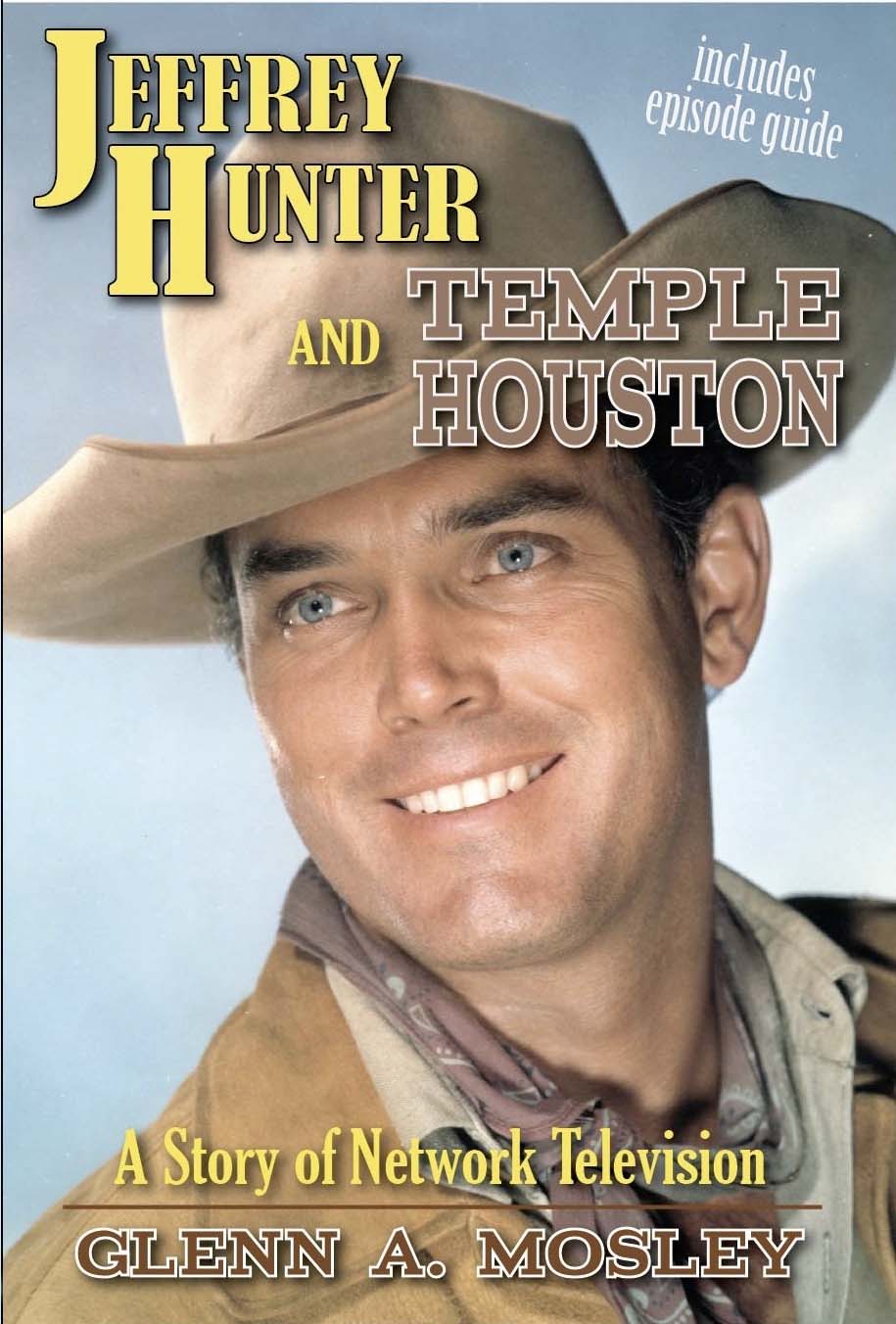
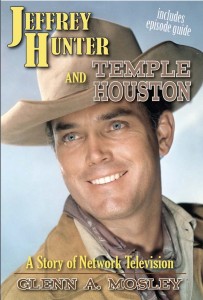 I love
I love 